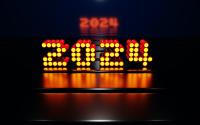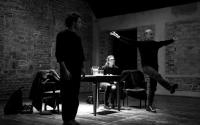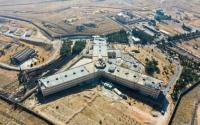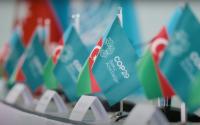The Independent5 April 2004To the horror of the occupying powers in Iraq, the country's ever more bloody insurgency spilt into the majority Shia Muslim community yesterday with seven US soldiers killed in clashes in Baghdad and another dying in the holy city of Najaf. The losses in Baghdad - the worst suffered by US troops since the war ended - took part in the impoverished slum area of Sadr City where Shia militiamen tried to take over police stations and government buildings last night, according to US military officials. More than two dozen soldiers were wounded. The incident is sure to provoke an anguished reaction among US politicians concerned about the mounting death toll. In Najaf, the shooting started after demonstrators gathered at the Spanish base on the outskirts of the city to protest against the arrest of an aide to Muqtada Sadr, the young Shia cleric whose "Army of Mehdi" has never before fired its guns.That the latest bloodbath should have occurred in Najaf one of the holiest shrines in Islam was as dangerous as it was painfully symbolic. Even as bullets skittered past them, protesters held up pictures of the imams Ali and Hussein whose epic martyrdom is being mourned in every Shia home. That it should be Spanish troops who were engaged in the battle, only weeks from being withdrawn from Iraq by Spain's new Socialist government, was a final irony. More than 200 people were wounded during the three-hour gun battle. At Najaf's main hospital, many of the dead were wearing the black uniform of Mr Sadr's army but two Iraqi police officers, one soldier from El Salvador and one US soldier were also among the dead. Mr Sadr called for an end to the fighting, with his spokesman, Abdulhadi al-Daraji, claiming that the "arrogant powers say thank you for your peaceful protests and then fire on the demonstrators". The demonstrations had their roots in the decision of Paul Bremer, the US proconsul, to close Mr Sadr's small-circulation, weekly newspaper, al-Hawza, in Baghdad a week ago for "inciting violence against coalition forces." It now seems that his decision to shut down the paper (its circulation of 10,000 was hardly going to arouse Shias to attack Western troops) has incited violence on a far greater scale than Mr Bremer could have imagined. Yet he managed to say all the wrong things again yesterday. "This morning, a group of people in Najaf have crossed the line and they have moved to violence," he announced. "This will not be tolerated. This will not be tolerated by the Iraqi people and this will not be tolerated by the Iraqi security forces." The trouble is that Mr Bremer has said all this before, but about Sunni insurgents, and his warnings almost always increase the anger of his antagonists and bring no end to violence. Mr Sadr, of course, has his own reasons to find political satisfaction in this bloodshed. In the shadow of his infinitely more learned and judicious clerical superior, Ayatollah Ali Sistani, Mr Sadr has for months attempted to present himself as the putative leader of the Shia community. The Anglo-American occupying powers have long suspected that Mr Sadr wanted just such a confrontation to rally support for his minority movement although why they should have arrested Mustafa Yacoubi, an aide to Mr Sadr, remains a political mystery. Mr Bremer, it seems, has now helped to bring that confrontation about. A newspaper that was ignored by millions of Iraqis, but whose sarcastic criticism of Mr Bremer is said to have personally annoyed the American proconsul, may henceforth be known as the paper which started a Shia insurrection. Mr Sadr may be gambling that the other Shia militias will fall into step with his own armed men. If this happens, and the insurgency spreads to other Shia cities, then the entire occupation of Iraq could become untenable. The Americans can scarcely contain the Sunni Muslim revolt to the north; they cannot fight another community, this one representing 60 per cent of Iraqis, even if British troops, who control the largely Shia city of Basra, become involved. The Spanish base in Najaf is located on the campus of Kufa university, a broad expanse of land close to the Euphrates to the north; they cannot fight another community, this one representing 60 per cent of Iraqis, even if British troops, who control the largely Shia city of Basra, become involved. Many of the soldiers in Najaf are involved in irrigation and agricultural projects. When bombs killed 190 people in Madrid last month, Shia clerics visited the Spanish troops in Najaf to express their condolences. That is unlikely to happen again. More Shia protests came in Baghdad where US-paid Iraqi police fired rifles in the air. The crowd carried a coffin draped with the Iraqi flag which they said held the body of a demonstrator killed on Saturday. In Anbar province, two US soldiers were killed near Fallujah, where four US contractors were murdered last week.In all, 600 US troops have been killed since the war started. America's mounting death toll Four hundred and eighty five US soldiers have been killed in Iraq since President Bush announced the end of hostilities last year. Among the worst incidents were: 3 July, 2003 Three soldiers from the 1st Armored Division were wounded when a rocket-propelled grenade hit their three-vehicle convoy in Baghdad's Sheikh Marus neighbourhood. 19 September, 2003 Three 4th Infantry Division soldiers were killed and two wounded when they were ambushed by small arms fire near Tikrit. 17 October, 2003 Three 101st Airborne Division Military Police soldiers and two Iraqi policemen were killed and seven wounded by small arms and rocket-propelled grenade fire at Imam Abbas Mosque in Karbala . April 3, 2004 Five marines were killed in an ambush in Al Anbar province.

Canlı Yayın
-
Canlı Yayın'a Geri Dön





